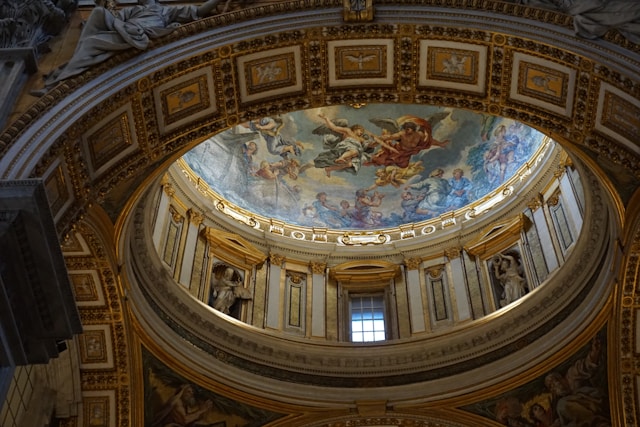Your cart is currently empty!
Unveiling the History and Legacy of the First Congregational Church

Origins and Establishment
The First Congregational Church, often referred to as the “mother church” of American Congregationalism, traces its roots to the founding of the Massachusetts Bay Colony in the 17th century. In 1629, a group of English Puritans led by John Winthrop established a church in Salem, which later became known as the First Church of Salem.
Pilgrim and Puritan Roots
The origins of the First Congregational Church can be traced to the Separatist movement within the Church of England during the reign of Queen Elizabeth I. Separatists, like the Pilgrims who founded Plymouth Colony, believed that the Church of England was too corrupt and sought to establish their own independent congregations based on biblical principles.
Theological Beliefs and Church Governance
Congregational Polity
The First Congregational Church adheres to the principle of congregational polity, which holds that each local congregation is autonomous and self-governing. This means that the church is led by a group of elected elders and deacons who are responsible for the spiritual and administrative affairs of the congregation.
Calvinist Theology
The First Congregational Church holds to the Calvinist tradition, which emphasizes the sovereignty of God, the depravity of human nature, and the need for salvation through faith in Jesus Christ. Calvinist theology also places a strong emphasis on personal sanctification and the importance of a holy life.
Pastoral Leadership and Notable Members
Prominent Pastors
The First Congregational Church has been served by a succession of influential pastors over the centuries, including:
- John Cotton (1633-1652): A leading Puritan divine and author of the influential catechism, “Milk for Babes.”
- Increase Mather (1664-1723): A prominent Puritan scholar, theologian, and president of Harvard College.
- John Hancock (1780-1793): A signer of the Declaration of Independence and the first governor of Massachusetts.
Notable Members
The First Congregational Church has also been home to many notable members, including:
- Benjamin Franklin: A founding father of the United States and a member of the church for many years.
- Paul Revere: A silversmith and a member of the Sons of Liberty, who alerted the militia to the arrival of the British in 1775.
- Abigail Adams: The wife of President John Adams and an active member of the church.
Historic and Architectural Significance
Meetinghouse and Burial Ground
The First Congregational Church has occupied several meetinghouses over the centuries, with the current building located on Washington Street in downtown Boston. The original meetinghouse was built in 1639, and the present structure dates back to 1809.
The church is notable for its beautiful Georgian architecture and its association with many important historical events. The Boston Massacre took place just steps away from the meetinghouse in 1770, and the church was used as a barracks by British troops during the Revolutionary War.
Grand Burying Ground
Adjacent to the meetinghouse is the Grand Burying Ground, the final resting place of many prominent Bostonians, including John Hancock, Samuel Adams, and Paul Revere. The graveyard is a historic landmark and a poignant reminder of the church’s long history and its connection to the city of Boston.
Modern Day and Future Vision
Today, the First Congregational Church continues to serve as an active and vibrant community of faith. The congregation is committed to its historic roots while also embracing contemporary challenges and opportunities.
Inclusive and Welcoming
The First Congregational Church welcomes people from all walks of life, regardless of race, gender, sexual orientation, or religious background. The church strives to create an inclusive and welcoming environment where all are valued and respected.
Social Justice Advocacy
The First Congregational Church has a long history of social justice advocacy, dating back to its early days as a supporter of the abolitionist movement. Today, the church remains active in addressing issues such as poverty, homelessness, and racial inequality.
Outreach and Ministries
The First Congregational Church offers a variety of outreach programs and ministries, including:
- Community meals: The church provides free meals to those in need on a regular basis.
- After-school programs: The church offers after-school tutoring and enrichment programs for children in the surrounding neighborhood.
- Music and arts programs: The church has a strong music and arts program, with a choir, a bell choir, and a variety of other performing groups.
Conclusion: A Legacy of Faith, Service, and Transformation
The First Congregational Church has a rich and storied history that spans nearly four centuries. From its humble beginnings as a small congregation of English Puritans to its current status as a vibrant and inclusive community of faith, the church has played a pivotal role in shaping the religious, social, and cultural landscape of Boston and beyond.
The church’s legacy is one of faith, service, and transformation. It is a place where people gather to worship, learn, and make a difference in the world. As the church looks to the future, it remains committed to its historic mission of serving as a beacon of hope and inspiration for all who seek it.